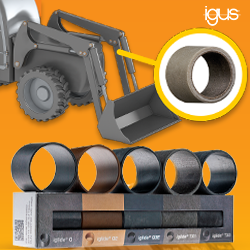New Power-Off Brakes for NEMA 17 & NEMA 23 Servo and Step Motors
This brake is designed to decelerate or hold an inertial load when the voltage is turned off. When voltage is applied, the friction disc is released and the brake is free of torque. This power-off brake is best suited for parking brake applications used to hold a load in position, and is ideal for creating brake motor packages for small servo & stepper frame motors.
The MPC is a power-off brake module with an output shaft. The unit mounts directly on to a NEMA C-Face servo or stepper motor and the output can also be coupled to a NEMA C-Face gear reducer.
This brake is designed to decelerate or hold an inertial load when the voltage is turned off. When voltage is applied, the friction disc is released and the brake is free of torque. This power-off brake is best suited for parking brake applications used to hold a load in position, and is ideal for creating brake motor packages for small servo & stepper frame motors.
Key Features:
• Mounts directly to any NEMA 17 or NEMA 23, frame servo or step motor
• Includes all necessary mounting hardware
• 12VDC, 24VDC, 90VDC or 120VAC windings available
• 12" lead wire termination
• Low current consumption
• Output shaft can be coupled to any NEMA 17 or NEMA 23, frame servo or step motor
• Optional metric input & output diameters
Click on the link below to view the specification on the NEMA 17 & NEMA 23 Brakes-
https://www.servo2go.com/product.php?ID=100229&cat=
For more information, please contact:
EDITORIAL CONTACT:
Warren Osak
sales@servo2go.com
Toll Free Phone: 877-378-0240
Toll Free Fax: 877-378-0249
www.servo2go.com
Featured Product

igus® - Free heavy-duty plastic bearings sample box
The iglide® heavy-duty sample box provides a selection of five unique iglide bearings, each suitable for use in heavy-duty equipment due to their self-lubricating, dirt-resistant properties. Each bearing material boasts unique benefits and is best suited for different application conditions, though each can withstand surface pressures of at least 11,603 psi at 68°F.
